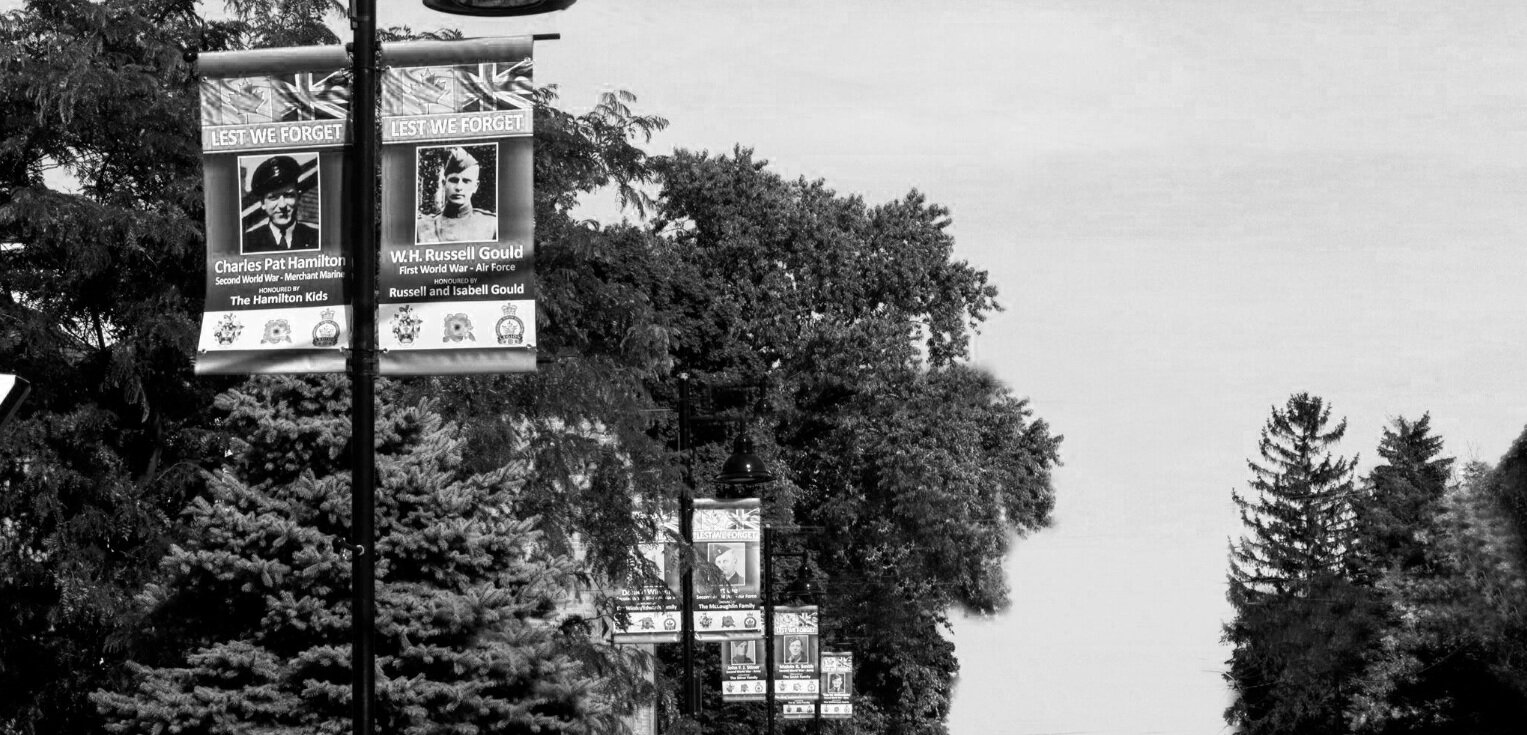
George Clark
George Clark was born March 17, 1887 to John and Mary Clark in Wick, Ontario (near Uxbridge). He was the youngest of 8 children.
George enlisted with the Army, Royal Garrison Artillery, 189th Heavy Battery, on December 28, 1914, Kingston, Ontario for service in the First World War.
He served overseas in England, France, and Belgium. After taking officer training in Belfast, he was commissioned into the British Army as a 2nd Lieutenant. While serving with the 189th Heavy Battery Division, George served in Palestine in June of 1917. He was killed in action in Gaza on November 3, 1917.
George’s brother David received a letter from him while he was serving at the front in Belgium. The letter was published in the Oxbow Herald on February 17, 1916 providing a snapshot of military life at the front.
Belgium, January 21, 1916
Dear Brother and Sister;
I am writing this in the “Dug Out” where I have been for the last four days. I am sitting on an empty cartridge box watching the supper cook. I am going into camp to night. I have been the cook this turn in the trenches. By the way, I want to thank you for the big box of eats you sent me. They were fine. I didn’t open the box at camp where there is so much of that kind of good eats, but brought it out to the dugout where it is appreciated. We certainly did enjoy it; everything was so well packed- it was all in good order when it arrived. It is all eaten except what is in the little sealed box. I am taking that back to camp.
I have just turned the bacon. We will have bacon and French fried potatoes tonight, besides bread and jam, butter, tea and milk and sugar. We have had some great meals. To day for dinner, I had beefsteak and onions, carrots, turnips, potatoes, bread, tea, and jam for the boys. That doesn’t look as if we are suffering much, does it? And we are not! At the “dugout” we have great meals. We put in a mess fund, a franc a piece for the six men – and that brings us ideal canned milk, oatmeal, and extra vegetables – then it is up to the cook.
For three days I gave the boys stews: besides the mean, there were carrots, turnips, potatoes, pea-meal, onions, and cabbage; also several oxo-cubes. It surely made a very savory mess. I can understand how a woman loves to cook and have her cooking appreciated.
I don’t cut the wood or haul the water, the boys rustle the wood out of old destroyed barns, and we get our water out of a little creek nearby.
January 22nd – I am back in camp again. I had to cut short my writing last night. I was on pass today to visit some boys I know in the first company engineers. I had to walk both ways and I am tired.
I will tell you about our “dugout”. It is six or seven hundred yards from the front line, and is in a corner room of some old farm buildings, apparently it was once a pig pen, or possibly a calf pen. It has a paved brick floor and is about nine feet square. We have four bunks in it – two double and two single. I slept in the lower double bunk; the stove is in the other corner. Six of us live in the “dugout”, so you see we haven’t any too much room. The store is a piece of old junk iron, and was once the bottom part of one of those hog-feed boilers. We pounded out a sheet of corrugated iron, and that is the top. It gives lots of surface for cooking on. The door of the store is a piece of tin propped up in the regular hole. For cooking, I had a tiny tea pot and a tin like pail that held about two quarts. Gee, you had to do some maneuvering to get a meal on that outfit. One night for supper, we had pork and beans, bacon, toast, jam, and tea and ended with a piece of your splendid fruit cake. The dugout is protected on two sides (nearest the enemy) by sand bags and brick. From the door of the dugout, we often saw pheasants and Belgium hares. Shots frequently came over, but we were in dead ground.
The weather has been mild. Hardly every any frost, but lots of cold wet days. I haven’t had a cold or been sick a day since coming over – except from tinned stuff.
Affectionately yours,
George Clark
We Will Remember Them
